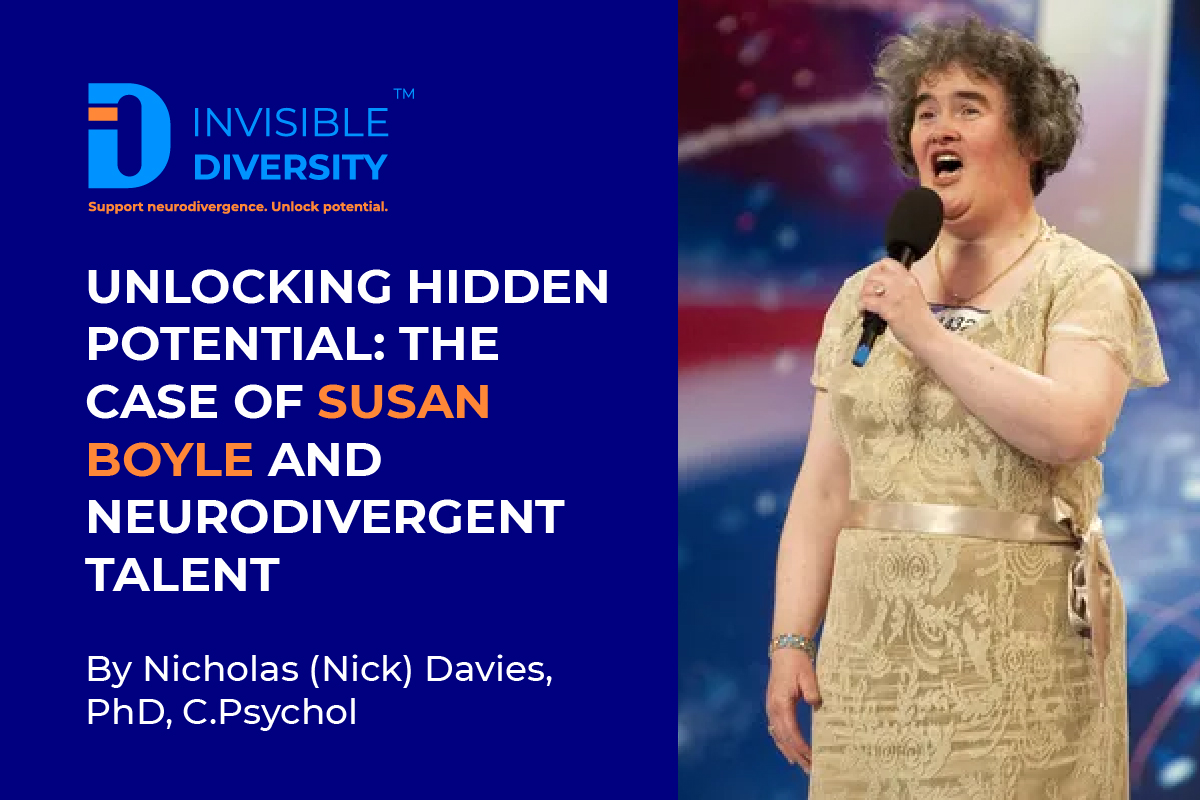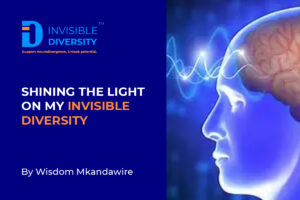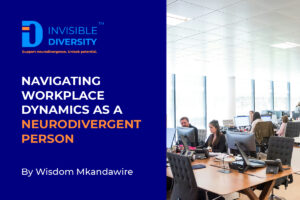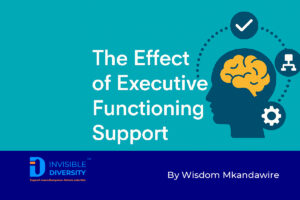One of the thrills of watching the “X-factor” and “America Got Talent” type of programmes is the unexpected brilliance that jumps out when it’s least expected. What’s also interesting is how our unconscious and hidden biases play into either our disappointment or thrill of the performers.
Way back in 2009 there was one of those moments of unconscious bias and stereotyping that temporarily obscured the extraordinary potential of one of the contestants.
Susan Boyle, a then-unknown autistic Scottish woman, stepped onto the stage of Britain’s Got Talent. From the moment she introduced herself, her unconventional demeanour, offbeat humour, and social awkwardness caused the audience and judges to dismiss her. As the camera panned across audience members and then the judges, eye brows were raised, brows furrowed, and irreverent titters were heard. Looks of scepticism and ridicule were captured on camera. But then Ms Boyle broke into song – I dreamed a Dream from Les Miserables. As the beauty and power of her pitch perfect and sublime voice captivated the room, turning mockery into awe within seconds, eye brows rose again, jaws dropped and the audience burst into spontaneous applause with a standing ovation within 20 seconds of her starting. The judges revelled in the exquisiteness of her performance. Ms Boyle went onto a music career that was unparalleled success in both the UK and the USA.
How does one capture what happened that day at the BGT auditions in Glasgow? What a transformative lesson on the dangers of underestimating people based on surface impressions.
One can’t but reflect how Susan Boyle’s story exemplifies the frequently overlooked or unrecognized potential in neurodivergent individuals, and how societal prejudices and society’s “Tyranny of Shoulds” – she should look like this; she should dress like this; she should interact like this – can prevent us from providing the opportunity for neurodivergent persons to have an opportunity to use their talents, to contribute, to be their best self.
Just for a moment, imagine if that BGT audition of Ms Boyle’s had been an interview for a formal job – Would she have got the job? Of course, it depends on the job and so on, but the point is, if for a moment we think of all the Susan Boyle’s out there, with talents, skills and valuable contributions to make, who present in idiosyncratic, non-normative ways, who’s answers to questions don’t fit the template for what we expect, what’s the outcome of their job interviews? Think of Ms Boyle’s answer to the question of her age, so unexpected and perhaps even bemusing; think of her lack of polished social skills, on the day…. Both totally irrelevant in terms of her singing prowess. Do our interview processes frequently disqualify the ‘operatic virtuoso’, because their answer to a question unrelated to the job description is out of our realm of comprehension, because their social engagement is not what we expect? Should there be a disqualification? Of course not, certainly not on those grounds.
Fortunately, the winds of change are beginning to blow. Some might say it’s still only a light breeze and there is much still to be done in altering “normative” interview processes to not discriminate against difference. Nevertheless, there are many websites offering very practical guidance in changing interview processes to accommodate neurodivergence. Could we strengthen the breeze of change by not only including these practical suggestions in the interview process, but perhaps ensure there is a neurodivergent person as part of the interview process? This might not always be possible, but educating (rather than ‘training’) managers and HR persons about neurodivergence, helping them develop a deep understanding of the neurodivergent brain and how it impacts one’s way of being and presenting in the world – why some neurodivergent people don’t make eye-contact, prefer not to shake hands, why some neurodivergent persons struggle to spontaneously answer questions, needing time to process, why some neurodivergent persons might not laugh at the joke, or engage in the small talk at the start of the interview – could ensure that opportunities to contribute, self-actualise and be one’s best self are not denied those who appear different.
Susan Boyle’s story resonates, I think, because it defied expectations and exposed how societal biases can obscure the brilliance of neurodivergent individuals. If Susan Boyle’s journey teaches us anything, it’s that the world loses out when it fails to see beyond the surface. By fostering inclusivity and supporting neurodivergence, we can uncover the hidden potential that lies within those who think and present differently.
Let’s dream a dream of a world where every individual, regardless of how they present, has the experience of feeling safe, accepted and competent.




